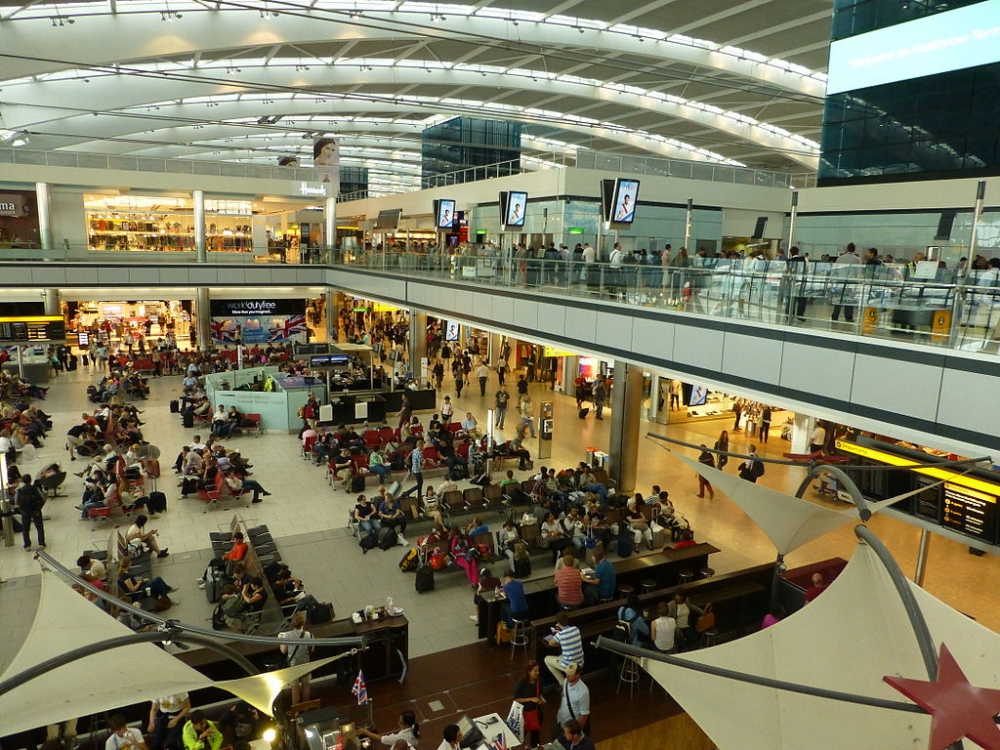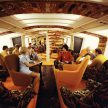The hapless passenger who ignited a global online firestorm after he was forcibly ejected from a United Express flight on Sunday would not have been chosen at random.
United Airlines, like many carriers, has a pecking order which sees it look after its best customers first and those in the cheapest seats last.
How this works is usually contained in the fine print known as the conditions of carriage.
There are some exceptions which in United’s case sees those with disabilities and passengers under the age of 18 considered last when it comes to denied boarding.
Read: Drone targets Singapore Airlines’ flight
That’s assuming you’re a Qualified Individual with a Disability, an individual with a physical or mental impairment that on a permanent or temporary basis limits one or more “major life activities’’.
For those not in these groups, however, whether you end up as one of the unfortunate few depends on your fare class, itinerary, frequent flyer status and even when you checked in.
Checking in late counts as a black mark and the airline will also be looking for someone on a cheap ticket, who doesn’t fly very often and therefore has a low or no frequent flyer status and is not connecting to another flight.
The other members of the “big three” US carriers use similar criteria but it pays to check each airline’s conditions of carriage.
“In such events, American will usually deny boarding based upon check-in time, but we may also consider factors such as severe hardships, fare paid, and status within the AAdvantage® program,’’ American Airlines says in its conditions of carriage.
Delta goes into a little more detail, actually defining the elite and corporate travellers least likely to get bumped.
They include travellers in premium cabins, passengers whose tickets are purchased under a corporate travel agreement as well as diamond, platinum or gold medallion SkyMiles members.
Passengers holding boarding passes who check in and present themselves at the departure gate in compliance with the rules are also accommodated before passengers traveling in the same cabin who have not been issued boarding passes or who fail to comply with applicable check-in requirements.
At the top of the pecking order for those who have failed to check in are passengers who have been rebooked on this flight because of an irregular operation such as a delay or cancellation.
Silver medallion SkyMiles members come next followed by passengers with SkyTeam Elite or Elite Plus status and then passengers without any elite status.
Special needs passengers, minors, US military personnel and the aged or infirm can be exempt from the status equation.
Over at Southwest — where boarding priority is determined on a first-come, first -served basis — the process is more egalitarian.
“In determining which passengers holding confirmed reserved space shall be denied boarding involuntarily, (the) carrier shall deny boarding in reverse order from the order in which the passengers’ boarding positions were secured (i.e., the last passenger who receives a boarding position will be the first passenger denied boarding involuntarily in an over-sale situation), with no preference given to any particular person or category of fares,’’
Southwest’s conditions of carriage say.
The good news is that involuntary denied boarding is relatively rare at just 0.62 passengers per 10,000 boarded in 2016. Put another way, the problem snared 40,629 passengers of the 659.7 million people who boarded planes in the US that year.
There are also government rules that require airlines to ask for volunteers before denying boarding and to offer compensation to those they turf off the plane if the delay in getting them to their destinations is more than an hour.
That come in at 200 per cent of your one-way ticket price (up to $US675) if you are bumped and between one and two hours late on a domestic flight or between one and four hours late on an international flight.
It hits 400 per cent, or a maximum of $US1375, if you are bumped and more than two hours late on a replacement domestic flight or four hours internationally.
























